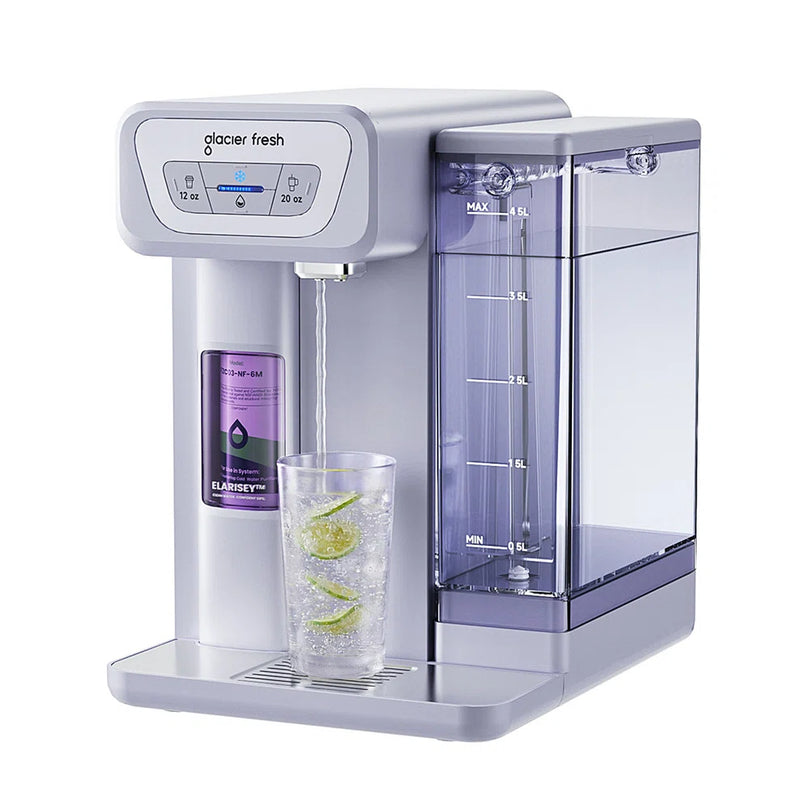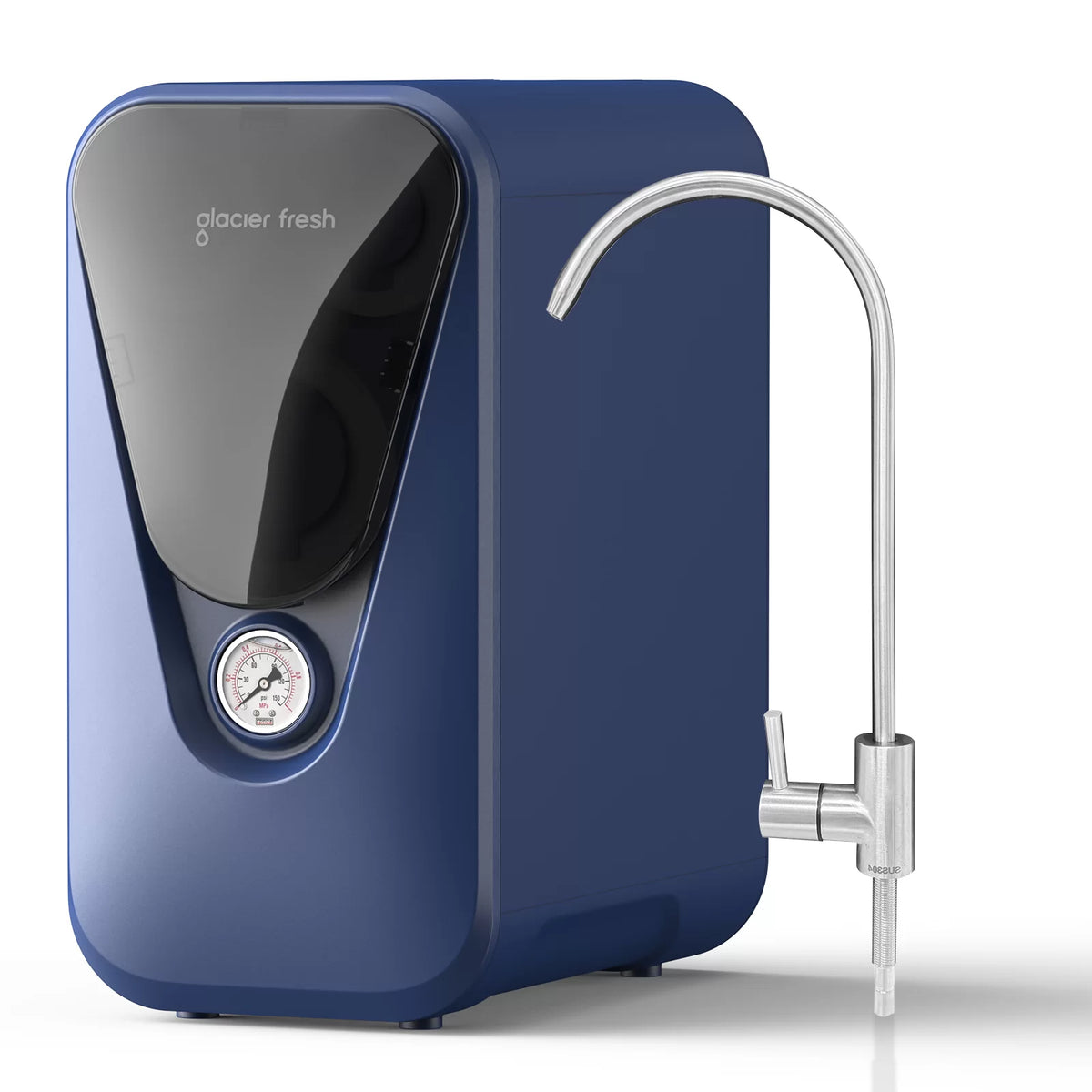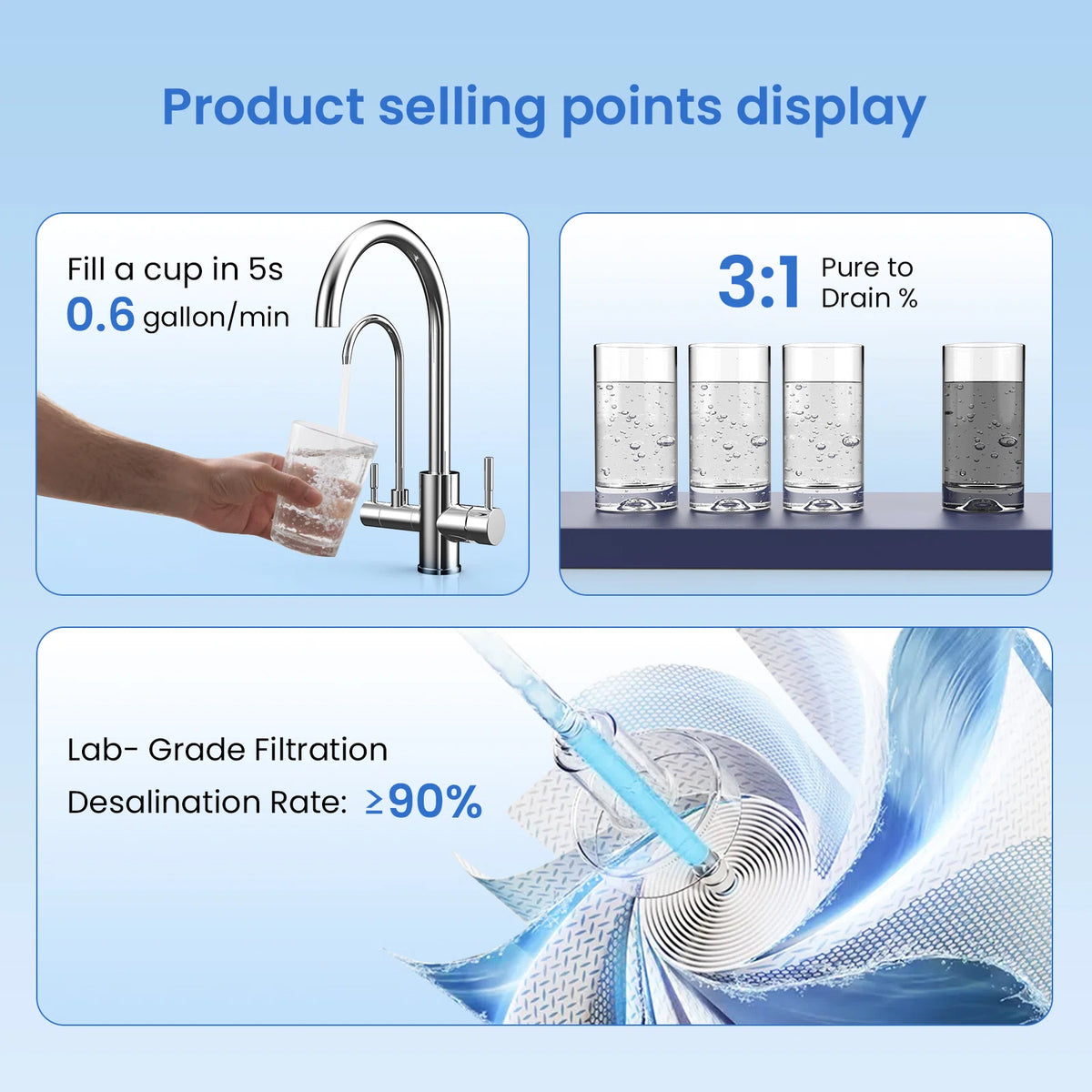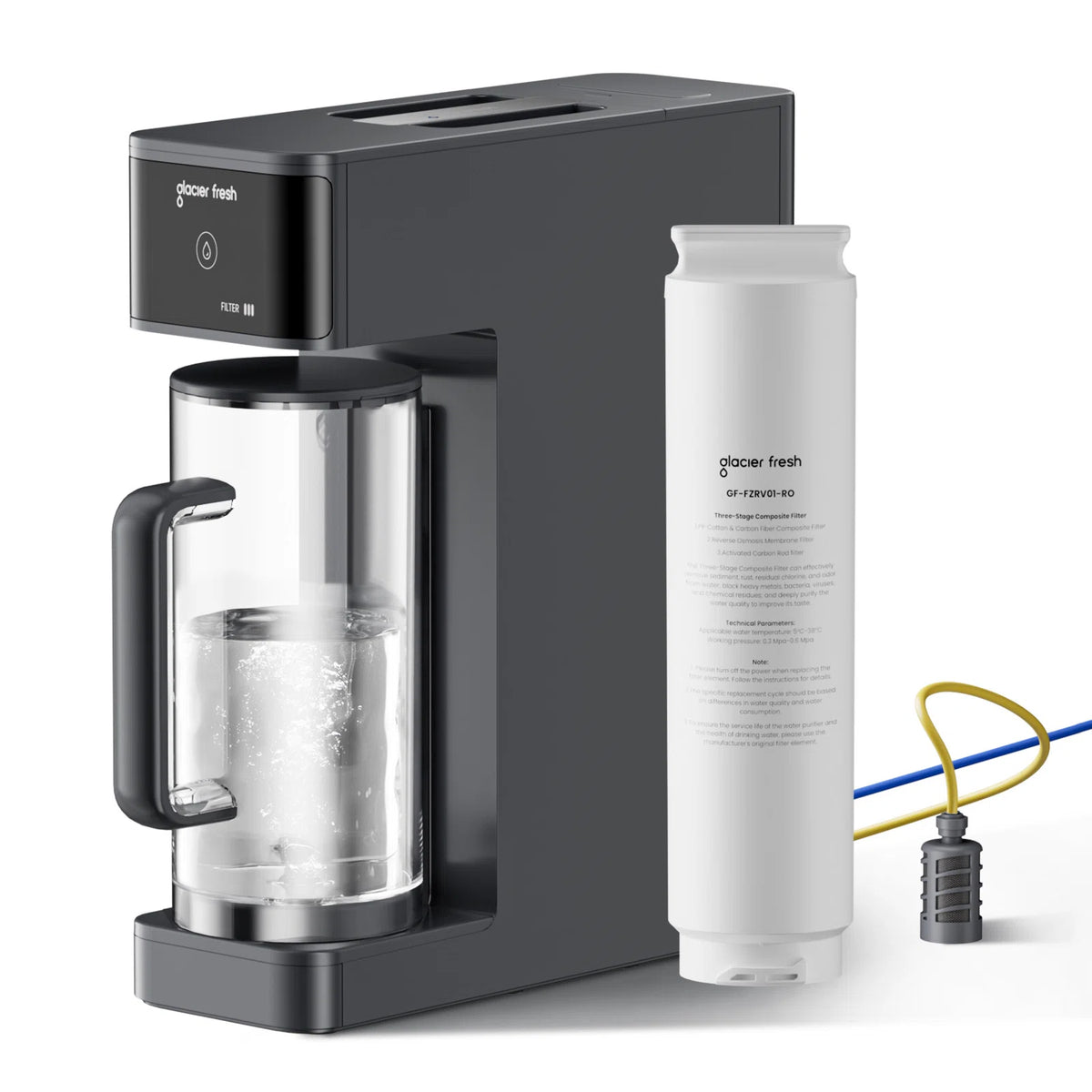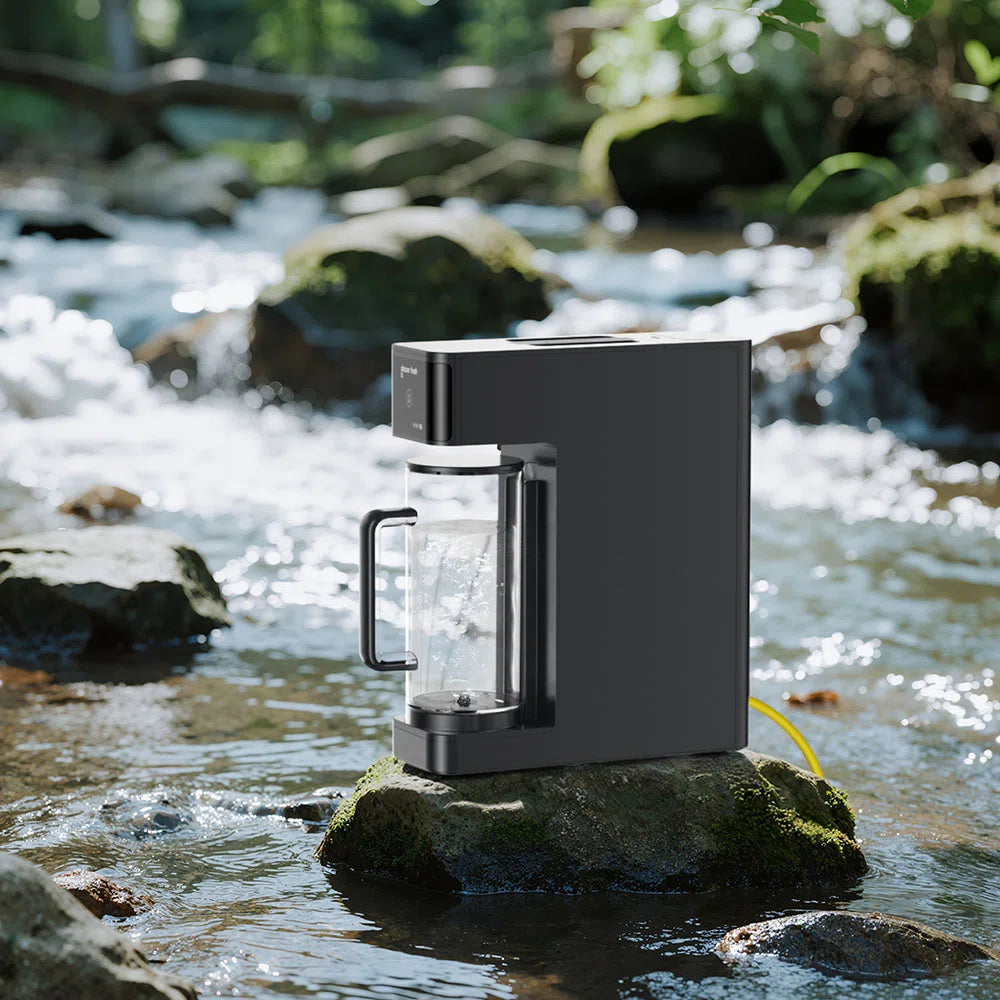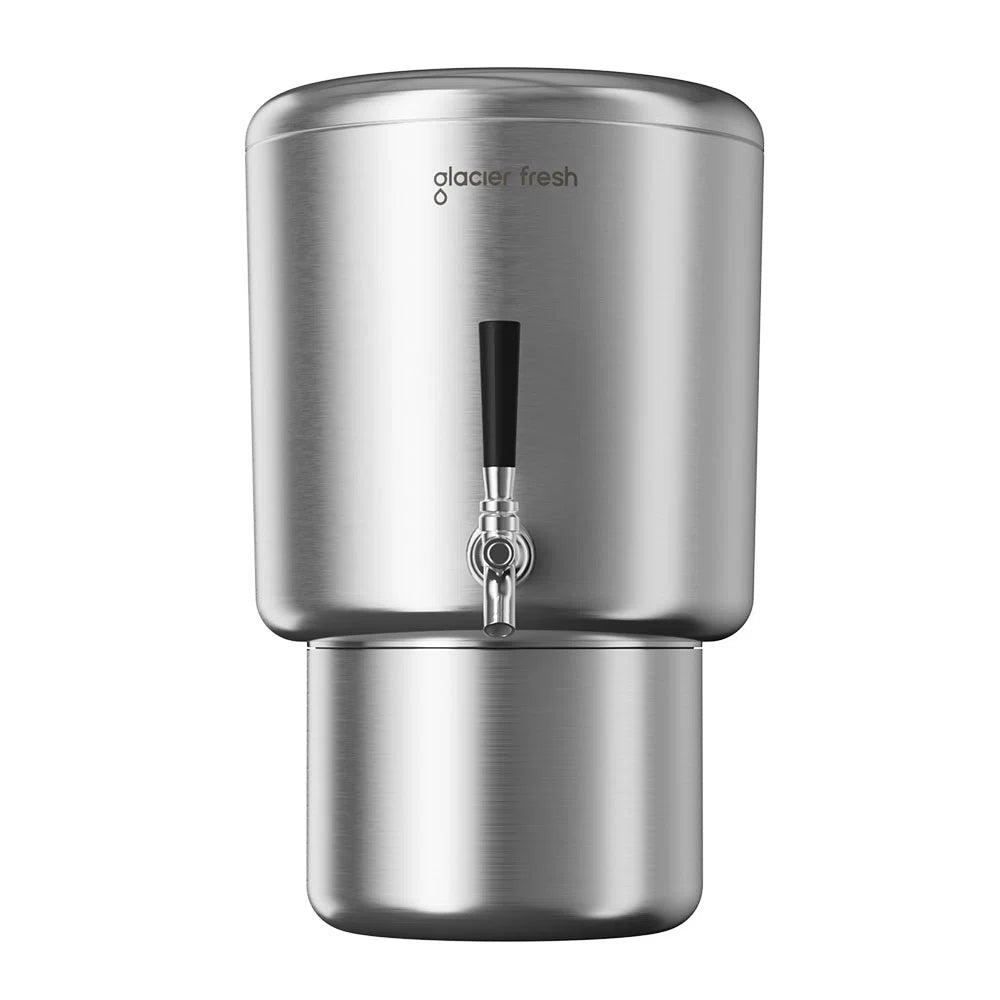Table of Contents:
When Should You Drink Cold Water vs. Warm Water?
What Qualifies as Cold Water?
What Qualifies as Warm Water?
Is It Better to Drink Cold or Warm Water In the Morning?
Common myths of cold and warm water debunked
To End
While there are few scientific studies on the best drinking water temperature, experts around the world agree that warm water is healthier overall. Allegedly, it aids digestion, relieves congestion, removes toxins, and reduces stress, among others. However, cold water is a better option on hot days, when you’re working out, or aiding in weight loss. This article explores the benefits of warm vs. cold drinking water.

When Should You Drink Cold Water vs. Warm Water?
You might know that drinking water is essential for your health, but most people aren’t too concerned about the water temperature.
A study on dehydrated Taekwondo athletes showed a preference for cool (60.8°F/16°C) rather than cold or warm water. Scientists believe that this is an evolutionary response; a separate study in rats demonstrated that thirsty animals chose cool vs. warm water at the beginning of their drinking session whenever given a chance.
The preference for cool water is most likely linked to its thirst-quenching effect. However, the same study demonstrates that once the thirst has been quenched, the temperature preference shifts to warm water, which is overall healthier.
The table below compares the benefits and drawbacks of drinking cold vs. warm water:
Benefits and Drawbacks of Drinking Cold vs. Warm Water
| Cold Water | Warm Water | |
| <50-250 | Cools body temperature Prevents excessive sweating and dehydration Can help in weight loss It tastes better than warm water. |
Relieves congestion Helps digestion and prevents bloating Eliminates toxins from the body Relieves constipation Improves central nervous system function Improves circulation Decreases stress levels Relieves symptoms of achalasia |
| Downsides | Slows digestion Can worsen head and stomach aches and abdominal cramps. |
May contain more contaminants Less palatable than cold water. |
| Best time to drink | Before, after, and during a workout, whenever you feel the need to rehydrate | In the morning During and after meals Before bedtime. |
What Qualifies as Cold Water?
Typically, most people think of ice-cold water from the fridge when talking about cold water. This water generally has a temperature of around 41°F (5°C) and comes directly from the fridge water cooler or a water pitcher filter kept in the refrigerator.
Cold water might also mean a glass of cold tap water with ice cubes in it. In this case, the water temperature can vary from 41°F to 60°F (15.5°C).
When thinking about cold tap water, most people describe it as cool. Tap water has an average temperature between 60°F and 60.8°F, although slight variations are normal from season to season.
Even though you might describe tap water as cool, water at this temperature has the most thirst-quenching effect, and it still qualifies as cold water.

Drinking Cold Water Benefits
The main benefit of cold water is its rehydrating property. Cold water is the best choice during and after a workout, preventing dehydration and a loss of electrolytes.
According to a study, you can prevent overheating by drinking cold water during exercise. This is because cold water can help your body keep a lower core temperature and make your training session more successful.
Experts at the University of Washington also demonstrated that the benefits of drinking ice-cold water is can help you burn more calories, albeit only a small amount. Nevertheless, if you’re trying to lose weight and enjoy chilly water, you may as well take advantage of that.

Disadvantages of Cold Water
Drinking cold water comes in handy when you’re dehydrated or trying to lose some weight. However, consuming cold water could aggravate some health conditions.
For instance, the disadvantage of drinking cold water is that it could induce or aggravate headaches in people suffering from migraines. It can also aggravate stomach aches and abdominal cramps.
Drinking cool water when suffering from a cold or flu can worsen respiratory congestion by thickening the nasal mucus.
Cold water can also worsen pain related to achalasia. This condition limits the body’s ability to pass food through the esophagus, symptoms allegedly worsening when drinking cold water during a meal.
What Qualifies as Warm Water?

As happens with cold water, people have different views when it comes to warm water.
To some, warm water is water at room temperature, which has an average of 68°F (20°C). However, some people may describe this water as cool.
Typically, warm water is water with a temperature between 72°F (22.2°C) and 105°F (40.5°C). Anything above this threshold qualifies as hot water.
Drinking Warm Water Benefits
Despite the fact that most people like cold water, drinking warm water has many more benefits.
The main benefit is related to digestion. Drinking warm water during and after a meal has favorable effects on intestinal movements and can improve digestion.
A faster metabolism is directly linked to weight loss. Thus, warm water, too, is a good choice if you’re fighting extra weight.
Drinking warm water or soup can help loosen clogged sinuses and relieve respiratory congestion.
According to a 2019 study, drinking warm water can boost mood and enhance brain function. Warm water can also reduce stress, improve circulation, and keep you warm in the cold.

Disadvantages of Drinking Warm Water
There are very few disadvantages to drinking warm vs. cold water.
One of the most frequent complaints is related to taste. Cold water tastes better because it masks the flavor of some impurities and feels more refreshing on the palate.
Warm water may also contain more contaminants compared to ice-cold water (some types of bacteria don’t tolerate cold temperatures).
Is It Better to Drink Cold or Warm Water In the Morning?

Warm water has more health benefits than cold water, and this is likely why celebrities and some experts recommend drinking warm water in the morning.
In truth, however, there are no studies to demonstrate which type of water can kickstart your body in the morning. The most important thing is to hydrate yourself as soon as you wake up.
Glacier Fresh faucet water filter replacements for PUR and Brita can help you make sure you’re always drinking clean, healthy water regardless of the water temperature you prefer.
Common myths of cold and warm water debunked
Myth 1: Cold water causes fat gain.
-
❌ False. Water has no calories and does not lead to weight gain.
Myth 2: Warm water burns more calories.
-
❌ Partially false. While warm water may slightly increase metabolism, the effect is minimal.
Myth 3: Cold water is always bad for digestion.
-
❌ Not always. It depends on individual sensitivity and timing (e.g., before vs. after meals).
To End
Cold water is more palatable and can rehydrate you faster. It is the best choice to keep yourself hydrated and prevent electrolyte loss through sweat when you’re exercising. Drinking cold water can also help lower your core temperature quickly, which can be important during summer.
Overall, warm water has more benefits. It can reduce congestion, relieve the symptoms of achalasia, help you fight stress, and increase brain function. At the end of the day, however, the most important thing is to stay hydrated. Follow Glacier Fresh to find more tips to safeguard your water safety.







